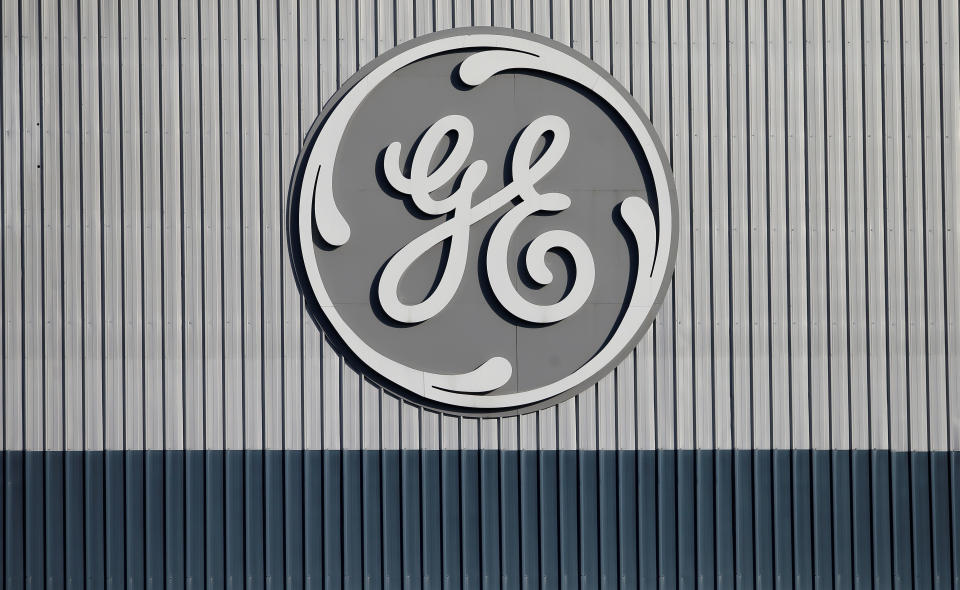General Electric's Q2 results top expectations, cash flow hit by Boeing 737 Max groundings
General Electric (GE) reported second-quarter results and full-year guidance that topped Wall Street’s expectations, while underscoring an expected impact to cash flow as a result of the ongoing grounding of the Boeing 737 Max aircraft.
Here were the main numbers from the report, compared to consensus estimates compiled by Bloomberg:
Revenue: $28.8 billion, vs. $28.7 billion expected
Adj. earnings: 17 cents per share, vs. 12 cents per share expected
In a separate statement, GE also announced that CFO Jamie Miller would be leaving her role. GE has begun a search for the next CFO, and Miller will remain in her position to “assist with a smooth transition,” the company said in a statement. Miller had first joined GE in 2008 and was named CFO in mid-2017.
Adjusted industrial free cash flow was negative $1.0 billion during the second quarter, coming in at the strong end of company guidance. In May, GE chief financial officer Jamie Miller said at a conference that the company would likely see cash outflow of between $1 billion and $2 billion during the period.
Analysts and investors closely monitor GE’s free cash flow – or in this case, outflow – to gauge the health of the company, which is in the midst of a multi-year turnaround plan under CEO Larry Culp. The company again characterized 2019 as “a reset year,” and over the past 12 months has announced it would be restructuring its Power unit, slashing costs and selling its biopharmaceutical business to Danaher.
Costs associated with GE’s industrial restructuring, however, are now expected to come in less-than-expected. The company updated its guidance to see 2019 industrial restructuring expenses of $1.7 billion to $2.0 billion, after previously guiding toward expenses of between $2.4 billion and $2.7 billion. GE said the revision was a result of “a combination of timing, attrition,” and “executing projects at lower cost than projected.”
Shares of General Electric jumped 3.71% to $10.89 each as of 6:48 a.m. ET.
However, GE reiterated an adverse impact to results due to Boeing’s 737 Max groundings. In the quarter prior, the company called the groundings “a new risk” to performance, given that GE produces 737 Max LEAP engines via CFM International, a joint venture with France’s Safran SA.
In an SEC filing, GE said that its cash flow from operating activities was negatively impacted by about $0.3 billion and $0.6 billion for the three months and six months ended June 30, respectively, as a result of the groundings.

“If the 737 MAX remains grounded, based on current assumptions, we anticipate a negative impact to GE CFOA of approximately $0.4 billion per quarter in the second half of 2019,” the company said.
Boeing (BA) said in second-quarter results last week that the 737 Max jets, which have been grounded since mid-March, could return to service as soon as the fourth quarter of this year. The timeline remains uncertain, however, and is subject to regulatory approval of Boeing’s software update to the aircraft, following two deadly crashes involving the jets.
Boeing-related hit aside, GE raised its full-year 2019 guidance “due to improvements at Power, lower restructuring and interest, higher earnings, and better visibility at the half,” Culp said in a statement. The company now sees full-year adjusted EPS of between 55 cents and 65 cents, up from as much as 60 cents previously. Full-year adjusted industrial free cash flow is expected to be an outflow of $1 billion to positive $1 billion, from outflow of as much as $2 billion previously.
—
Emily McCormick is a reporter for Yahoo Finance. Follow her on Twitter: @emily_mcck
Read more from Emily:
Netflix’s 2Q global paid subscriber additions miss expectations
Tech companies like Lyft want your money – not ‘your opinion’
Follow Yahoo Finance on Twitter, Facebook, Instagram, Flipboard, LinkedIn, and reddit.
Read the latest financial and business news from Yahoo Finance